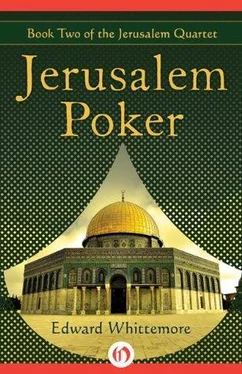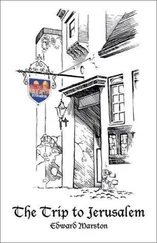But Munk only smiled and shrugged and said he didn't know, then returned to the family archives to try to discover the secret he knew must be there, the secret of an unusual life, made unique because lived according to its own nature and nothing else.
What was the secret that had driven his great-grandfather to do all the incredible things he had done?
Simple curiosity? A fascination with strange customs? To see what others hadn't seen?
In the comfortable kitchen of Sarah the First, surrounded by the enormous bookshelves with their thousands and thousands of love letters, young Munk sat gazing out the window not really seeing what lay beyond it. Certainly his great-grandfather must have had all those feelings, he was aware of that. But what else had there been for Johann Luigi? What had driven him? What was the secret?
At the age of eighteen, with his family insisting he choose a profession, he finally made a decision. And when he announced his choice they received it in utter amazement.
But why that, Munk? If you're not interested in being a musician, then trade at least would be understandable. We certainly did that for a long time. Or scholarship or one of the professions. Your great-grandfather was both a scholar and a medical doctor, after all. Or chemistry or languages, he did that too. But a Szondi in the army? In the Austro-Hungarian Imperial Army? A Szondi pursuing a military career? It's unheard of.
Yes, said Munk quietly, smiling. I thought so myself.
But after being trained and serving for a short time with a regiment of dragoons near Vienna, young Munk realized everyday soldiering wasn't for him either.
He applied for duty overseas, and as luck would have it an aide to the Austro-Hungarian military attaché in Constantinople died that very week as a result of having eaten bad Turkish meat. Thus in the summer of 1908, Munk found himself seconded to the capital of the Ottoman Empire.
He had been there little more than a month when the Austrian annexation of Bosnia brought on yet another Balkan crisis, causing the Turks to undertake secret military preparations. Lieutenant Szondi's reports from the field proved so valuable he was promoted to captain early in December.
Then on Christmas the attaché and his entire staff, except for Munk, were violently stricken by food poisoning while consuming a holiday feast of contaminated wild Turkish boar. Munk escaped the poisoning because he had been eating large amounts of garlic since entering Turkey, having learned of this simple yet effective antidote to bad meat from the letters of his great-grandfather, who had used the remedy successfully throughout his travels.
A few of his fellow officers lingered into the new year, but all were dead by Epiphany. Since there was no one else in Constantinople who could fill the position, the ambassador named Munk acting military attaché, an astonishing responsibility for one so young.
But Munk's rapid rise had only begun. The former attaché had not had time to submit his annual summary of the situation in the Ottoman Empire, and Munk took the opportunity to completely revise it.
Of course his superiors had no way of knowing he was able to draw on the vast accumulation of information he had learned as a boy while studying the secret Szondi archives in Budapest. What they did know was that another incident involving foul Turkish meat, a hazard faced by all Europeans in Constantinople, had suddenly brought to their attention a brilliant young officer with an unsurpassed knowledge of the Ottoman Empire.
Munk received a letter of commendation. He was promoted to major and made the permanent acting attaché.
Now Munk had found something that did interest him. For the next four years, eating handfuls of garlic and happily indulging his passion for details, he traveled extensively in the Balkans analyzing the impossible confusion there as Ottoman power disintegrated. None of the other European military attachés could keep up with him, crippled as they were by bad Turkish meat. In recognition of his achievements he was duly promoted to lieutenant colonel.
Then in the autumn of 1912 the Turks announced maneuvers near Adrianople and all the Balkan states mobilized. The first Balkan war broke out with the Bulgarians and the Serbs and the Montenegrins, the Albanians and the Macedonians all rising up against the Turks. Meanwhile Russia and Austria-Hungary prepared for war against each other to support their various interests.
In this vast maze of intrigue and threats and sudden attacks, young Munk moved recklessly from front to front gathering information, all the while pursuing clandestine meetings in Constantinople and elsewhere with equal abandon.
Tireless and daring, young Lieutenant Colonel Szondi acquired a notoriety that would soon become intolerable to the chief enemy of the Austro-Hungarian Empire.
One of his frequent companions during those last hectic weeks of 1912 was the Japanese military attaché in Constantinople, one Major Kikuchi, a diminutive aristocrat who had become a hero of the Russo-Japanese War by ordering his men to pile up the dead horses of the Cossacks on a barren Manchurian plain, as a barrier against their incessant attacks, a desperate move that had allowed his company alone to survive the massacre of a Japanese regiment, safe behind the eight-foot-high walls of rotting meat that Kikuchi had erected.
Either because he was a Buddhist, or because of the indelible memory of that stench on a Manchurian plain, Major Kikuchi never ate meat, which allowed him to be as mobile as Munk in Turkey.
So they often traveled together, comparing their notes and talking late into the night in the clumsy wagons and lurching trains they shared while moving from front to front, developing a brief but lasting friendship that would one day lead Munk to find what he had always sought in the strange music of a desert monastery.
Late in November, Munk acquired the documents that brought an end to the first Balkan war, certain secret communications from Moscow that proved Russia would not go to war for the sake of the Balkan Slavs. Despite Russian mobilization, the territorial claims of the Serbs were to be abandoned.
These disclosures humiliated and outraged the Russians, and as a price for taking part in peace negotiations they insisted upon a cruel and unusual revenge. The notorious Austro-Hungarian military attaché who had operated so successfully in the Balkans had to be expelled from the army. Furthermore, in order to make certain he was no longer playing a part in Balkan military affairs, he had to be sent into exile in the Ottoman Empire where Russian agents could keep an eye on him.
Munk's orders arrived early in the new year and he sadly boarded the Orient Express for Vienna, where he would experience his last day of military service.
A full color guard greeted him at the station. He was driven to the headquarters of the chief of staff, with a cavalry escort, and ceremoniously promoted to colonel, at the age of twenty-two by far the youngest in the Imperial Army. He was also awarded the Order of the Golden Fleece.
After a formal luncheon with the officers of his old regiment, the dragoons mounted a dress parade in his honor. Finally at sunset he returned to the headquarters of the chief of staff, again with a cavalry escort, to hear read aloud the order of his expulsion from the army, along with an edict from the emperor expressing condolences and decreeing his exile within the week in the cause of peace.
When Munk arrived in Budapest that evening to say good-bye to his family he found only the men at home, some event of great importance having caused the directors of the House of Szondi to gather in emergency session.
Instructions awaited him. Ex-Colonel Szondi responded at once and galloped off to the rambling old house above the Danube that had once been the home of Sarah the First.
Читать дальше












